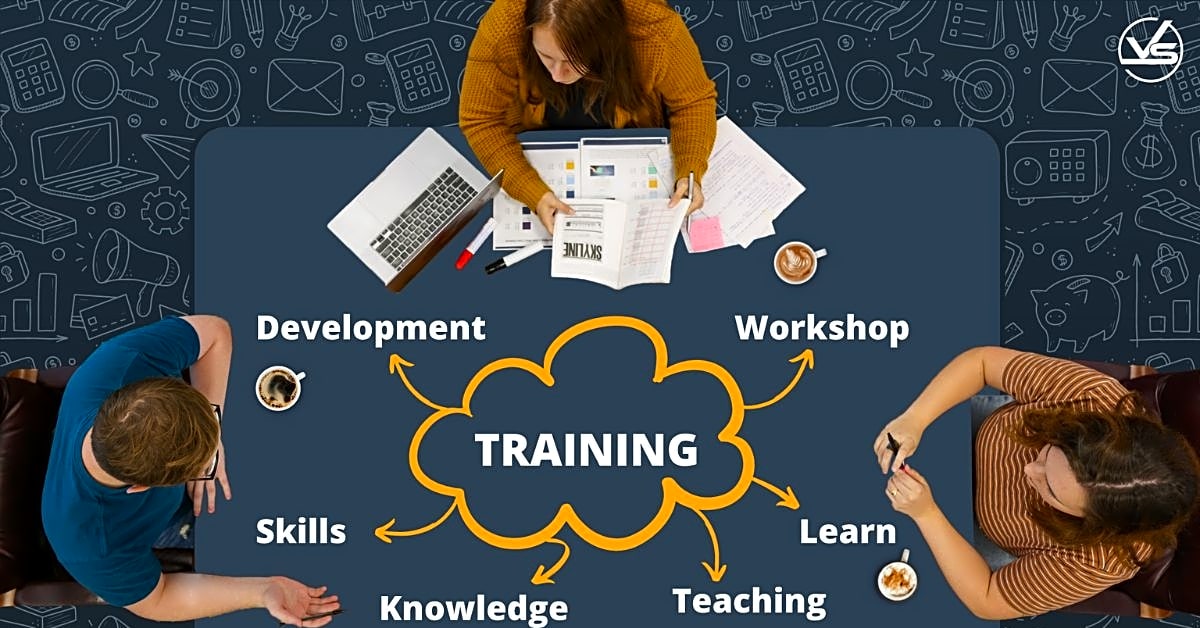When it comes to running a successful business, one of the most crucial skills to master is project management. Without proper monitoring and controlling of projects, even the best ideas can fall short. That’s why it’s essential for business owners and managers to have a solid understanding of the key principles and techniques involved in monitoring and controlling projects. In this article, we will delve into the world of project management, specifically focusing on the important topic of monitoring and controlling projects. Whether you’re a seasoned project manager or just starting out in your career, this article will provide valuable insights and tips to help you become a master of monitoring and controlling projects. So sit back, grab a cup of coffee, and get ready to enhance your project management skills with our in-depth guide on mastering monitoring and controlling.
To effectively monitor and control a project, it is important to have a clear understanding of the project goals and objectives. This includes setting realistic timelines, establishing a budget, and outlining the tasks and responsibilities of each team member.
A project management tool such as Asana or Trello can help you keep track of these details and ensure that everything stays on track. Additionally, effective communication is key in project management. As a leader, it is important to clearly communicate expectations and provide regular updates on the progress of the project. This will help keep everyone on the same page and avoid any misunderstandings.
Another aspect of monitoring and controlling projects is identifying potential risks and developing contingency plans. This involves anticipating any obstacles that may arise during the project and having a plan in place to address them. This proactive approach can save time and resources in the long run.
Time management is also crucial in project execution. It is important to prioritize tasks and allocate resources accordingly to ensure that the project stays on track and meets its deadlines. This may involve delegating tasks to team members or adjusting timelines as needed.
Building a strong and cohesive team is also essential in project management. This involves understanding the strengths and weaknesses of each team member and assigning tasks accordingly. Additionally, fostering a positive and collaborative work environment can improve productivity and overall team performance.
Decision making is another important aspect of monitoring and controlling projects. As a leader, you will be faced with various decisions throughout the project, and it is important to carefully consider all options before making a choice. This involves gathering information, evaluating the potential outcomes, and consulting with other team members when necessary.
Organizational skills are also vital in project management. This includes keeping track of project documents, maintaining a well-organized workspace, and managing time effectively. By staying organized, you can avoid delays and ensure that all necessary tasks are completed in a timely manner.
Lastly, productivity is key in project execution. This involves setting realistic goals for each team member, providing them with the necessary resources and support, and regularly monitoring their progress. By promoting a productive work environment, you can ensure that the project stays on track and achieves its desired outcomes.
Time Management: Prioritizing Tasks and Allocating Resources
One of the most important skills in managing and controlling projects is time management. As a business owner or manager, it is crucial to prioritize tasks and allocate resources effectively in order to ensure that your project stays on track and meets its deadlines.
To effectively manage time, you must first identify the tasks that are essential for the success of your project. This includes setting clear goals and objectives, breaking down the project into smaller tasks, and determining their level of importance. By doing so, you can prioritize tasks based on their urgency and impact on the overall project.
Allocating resources, such as manpower and budget, is also a crucial aspect of time management. You must carefully assess the needs of each task and allocate resources accordingly. This involves assigning tasks to team members with the necessary skills and expertise, and ensuring that they have the necessary tools and materials to complete their tasks efficiently.
Effective time management also requires setting realistic timelines for each task and monitoring progress closely. By regularly tracking the progress of tasks, you can identify any potential delays or issues and take corrective actions to keep the project on track.
Organizational Skills: Keeping Everything in Order
In the world of project management, organization is key to success. As a business owner or manager, it is your responsibility to keep everything in order and ensure that the project runs smoothly from start to finish. This includes managing project documents, timelines, and resources efficiently.
Having strong organizational skills allows you to stay on top of tasks and deadlines, avoid confusion and delays, and maintain a high level of productivity. It also helps you effectively delegate tasks and communicate expectations to team members.
To improve your organizational skills in project management, it is important to establish a system for managing project documents. This can include creating a central repository for all project-related documents, using standardized naming conventions, and regularly updating and organizing files.
Another important aspect of organizational skills in project management is time management. This involves creating realistic timelines and schedules, setting priorities, and regularly monitoring progress to ensure that the project stays on track.
By staying organized in project management, you can effectively manage resources, avoid costly mistakes, and ultimately achieve your business goals.
Effective Decision Making
As a business owner or manager, one of the most important skills you need to have is effective decision making. This skill is crucial in managing and controlling projects, as it allows you to make informed and strategic decisions throughout the project. Decision making involves assessing and evaluating various options and choosing the best course of action for your project.
One key aspect of effective decision making is being able to identify potential risks and problems before they arise. By anticipating challenges and having contingency plans in place, you can avoid costly mistakes and keep your project on track. This requires careful analysis and critical thinking, as well as the ability to weigh the pros and cons of different options.
Another important aspect of decision making is effective communication. As a project manager, you need to be able to clearly communicate your decisions to your team and stakeholders. This not only helps everyone understand the direction of the project, but it also fosters trust and accountability within the team.
To improve your decision making skills, it is important to constantly evaluate and reflect on your past decisions. This allows you to learn from your mistakes and make more informed decisions in the future.
Identifying Risks and Developing Contingency Plans
One of the key skills in monitoring and controlling projects is being able to anticipate and identify potential risks. These risks can range from unexpected delays and budget overruns to team conflicts and resource limitations. As a business owner or manager, it is essential to have a proactive approach to risk management in order to minimize the impact on your project.
Anticipating Risks
The first step in identifying risks is to analyze your project thoroughly. This includes understanding the project scope, goals, timelines, and resources. By having a clear understanding of these factors, you can anticipate potential risks that may arise during the project’s execution.
Additionally, it is important to involve your team members in this process. They can provide valuable insights and perspectives on potential risks based on their expertise and experience.
Developing Contingency Plans
Once you have identified potential risks, the next step is to develop contingency plans to mitigate them. A contingency plan is a backup plan that outlines steps to be taken if a risk occurs. This could include reallocating resources, adjusting timelines, or seeking external support.
It is crucial to have multiple contingency plans in place for different types of risks. This will ensure that you are prepared for any unforeseen circumstances that may arise during the project.
Effective Communication: The Key to Project Success
Communication is the cornerstone of successful project management. It is the key to ensuring that all team members are on the same page, working towards the same goals, and effectively addressing any issues or challenges that arise.
One of the most important aspects of effective communication in project management is clarity. It is crucial to clearly define roles, responsibilities, and expectations for each team member to avoid confusion and ensure that everyone knows what is expected of them.
Another important aspect is transparency. This means keeping all team members informed and updated on project progress, changes, and any potential roadblocks. This promotes trust and accountability within the team.
Additionally, effective communication involves active listening. This means actively seeking input and feedback from team members, valuing their opinions and ideas, and addressing any concerns or issues that may arise.
To improve your communication skills as a project manager, consider implementing these strategies:
- Regular team meetings to discuss project progress, updates, and any challenges
- Utilizing project management tools for clear and efficient communication
- Establishing an open-door policy for team members to approach you with any concerns or ideas
- Providing regular feedback and recognition for team members’ contributions
By prioritizing effective communication in your project management approach, you can ensure that your team is working together towards a common goal, identify and address any issues or roadblocks, and ultimately achieve project success.
Building a Strong and Cohesive Team
In project management, the success of a project is highly dependent on the performance of the team. A strong and cohesive team is essential for achieving project objectives and ensuring smooth execution. It is important for a business owner or manager to have effective team building skills to foster a positive and collaborative work environment.
One of the key aspects of team building is creating a sense of unity and camaraderie among team members. This can be achieved through team building activities, such as team building exercises, retreats, and team bonding events. These activities not only help in building trust and improving communication among team members, but also create a sense of belonging and motivation within the team.
Another important aspect of team building is recognizing and utilizing the strengths of each team member. By understanding their skills and strengths, a project manager can assign tasks accordingly and ensure that each team member feels valued and contributes to the project’s success. This also helps in promoting a positive and collaborative work culture.
Communication is crucial in any team and it plays a significant role in team building. Encouraging open communication among team members helps in identifying and addressing any issues or conflicts that may arise during the project. It also fosters transparency and trust within the team.
Overall, a strong and cohesive team is essential for effective project management. By investing time and effort in team building, business owners and managers can create a positive work environment that promotes productivity, collaboration, and success.
Promoting Productivity
In order to successfully monitor and control projects, promoting productivity within your team is crucial. When everyone is working at their highest potential, the chances of project success increase significantly. Here are some key factors to consider in promoting productivity:
- Effective Time Management: Time management is essential for any project. As a business owner or manager, it is important to set realistic deadlines and ensure that tasks are completed on time. This requires effective planning, organization, and delegation of tasks.
- Team Building: A strong team dynamic is essential for productivity. As a leader, it is important to foster a positive and collaborative work environment. Encourage open communication, trust, and respect among team members to promote productivity.
- Decision Making: Being able to make timely and effective decisions is crucial for project success. This requires gathering all necessary information, considering all options, and making a well-informed decision that aligns with the project goals.
- Communication: Effective communication is key in promoting productivity. Make sure all team members are on the same page and have a clear understanding of their roles and responsibilities. Encourage open communication channels and provide regular updates on the project’s progress.
- Problem Solving: In any project, problems are bound to arise. As a business owner or manager, it is important to have strong problem-solving skills and be able to address issues efficiently. Encourage team members to think critically and come up with creative solutions to overcome any obstacles.
- Organization: Keeping everything organized is essential for productivity. This includes setting clear goals, creating a detailed project plan, and keeping track of all tasks and deadlines.
- Productivity Tools: There are various productivity tools available that can help streamline project management and increase efficiency. Consider using project management software, communication tools, and time-tracking apps to keep your team organized and on track.
By promoting productivity within your team, you can ensure the success of your project and achieve your business goals. Make sure to continuously evaluate and improve upon these key factors to maintain a productive work environment.
Mastering monitoring and controlling projects is essential for business management success. By effectively overseeing and directing various aspects of a project, such as time management, team building, decision making, communication, problem solving, organization, and productivity, you can ensure the success of your business. Use the tips and strategies outlined in this article to improve your skills and take your business to the next level.






